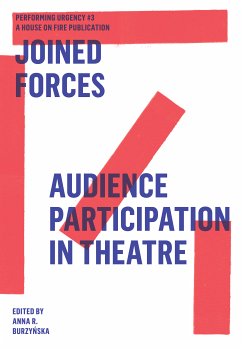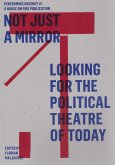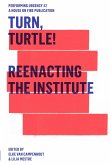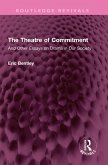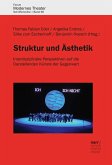Band 3 der von Florian Malzacher herausgegebenen englischsprachigen Reihe Performing Urgency. Im Kontext heutiger Politik, Wirtschaft und sich permanent verändernden kulturellen Trends kommt das traditionelle Theater mit seiner Trennung von aktiven Darstellern und passiven Zuschauern immer mehr aus der Mode. Zeitgenössische Künstler emanzipieren ihr Publikum, laden es auf die Bühne und in die Performance ein, beleidigen und provozieren es und erproben verschiedenste Techniken der Teilhabe. Das Buch verbindet zahlreiche Beispiele von Publikumsbeteiligung mit Problemen der Partizipation in Demokratie und sozial engagierter Kunst. The nineteenth century was a century of actors. The twentieth century was a century of directors. The twenty-first century is a century of spectators. With Jacques Rancière's The Emancipated Spectator (2009) being the most discussed theatre-related text of the last decade, there is an increase in scholarly and curatorial interest in the most mysterious, potentially dangerous and, in fact, most important participant of the performance, who stays silent, motionless, and hidden in darkness: the audience. And similarly, artists desire to finally 'meet the spectators': to let them speak, get into a dialogue with them, invite them to involve themselves in pursuing the performance.
Dieser Download kann aus rechtlichen Gründen nur mit Rechnungsadresse in A, B, BG, CY, CZ, D, DK, EW, E, FIN, F, GR, H, IRL, I, LT, L, LR, M, NL, PL, P, R, S, SLO, SK ausgeliefert werden.
Hinweis: Dieser Artikel kann nur an eine deutsche Lieferadresse ausgeliefert werden.

